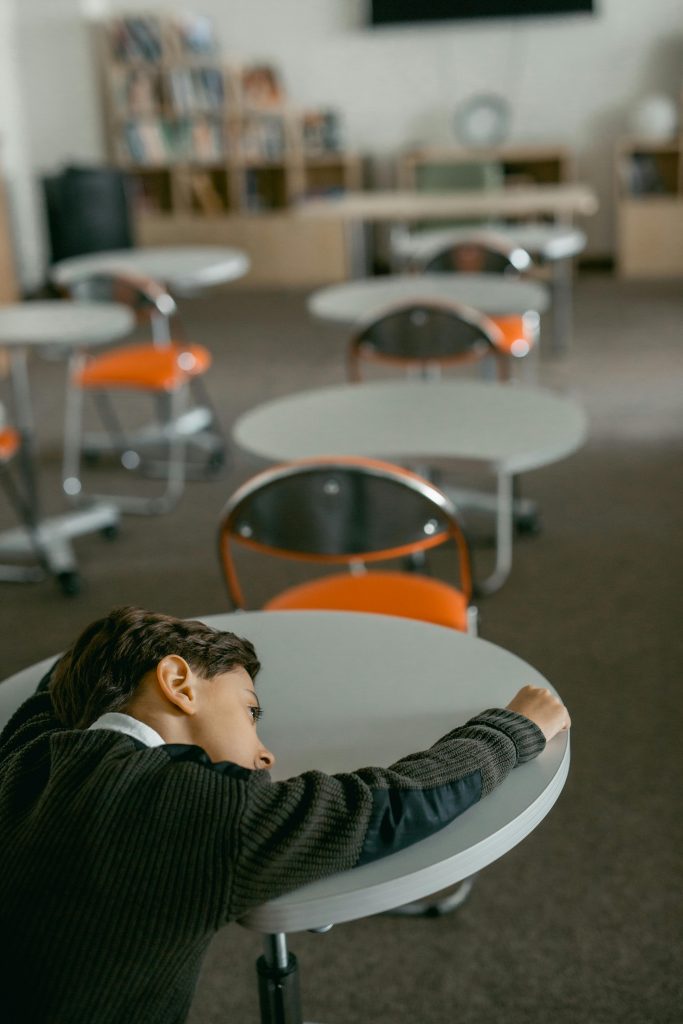
Introduction
As summer fades and the school year begins, many families find themselves battling with alarm clocks, rushed breakfasts, and sleepy-eyed kids. While pencils, notebooks, and backpacks are essential, there’s something even more critical for your child’s success this school year: a good night’s sleep.
Sleep is not just rest; it is an active process that allows the body and brain to grow, repair, and prepare for the challenges of the day ahead. When children consistently get high-quality sleep, they experience benefits that touch every area of life, from stronger immune systems to sharper thinking and better moods.
Why Sleep Is the Brain’s Best Friend
Children’s brains are constantly developing, and sleep fuels this process in profound ways:
Memory and Learning Consolidation: Sleep is when the brain processes and stores the day’s experiences, converting them into lasting memories. Without enough sleep, this consolidation is incomplete, making it harder for kids to retain what they’ve learned.
Problem-Solving Skills: Research shows that well-rested children are better at creative thinking and complex problem-solving.
Attention and Focus: Adequate sleep improves attention span, reducing distractibility in class.
The Toll of Sleep Deprivation on Children
When children get less sleep than they need, the effects can show up quickly:
Cognitive Impairment
Even modest reductions in sleep can cause drops in test performance and slower reaction times.
Emotional and Behavioral Issues
Sleep-deprived children are more likely to be irritable, anxious, or hyperactive — sometimes leading to ADHD misdiagnoses.
Physical Health Risks
Chronic sleep deprivation is linked to obesity, weakened immunity, and increased risk of type 2 diabetes.
Hormonal and Growth Disruption
Growth hormone is primarily secreted during deep sleep, meaning poor sleep can interfere with normal growth and development.
How Much Sleep Do Kids Need?
The American Academy of Pediatrics recommends:
- Ages 6–12: 9–12 hours per night
- Ages 13–18: 8–10 hours per night
Unfortunately, CDC surveys reveal that nearly 60% of middle schoolers and 70% of high schoolers fail to meet these targets during the school year.
Why Back-to-School Can Disrupt Sleep
Over the summer, children’s schedules often drift toward later bedtimes and wake-up times. This “social jet lag” a mismatch between biological rhythms and school schedules, can leave kids groggy and unfocused for weeks if not addressed. Early start times magnify the problem, especially for teens whose circadian rhythms naturally shift later during puberty.
The Science of Quality Sleep
Not all sleep is equal. Children need continuous, restorative sleep that cycles through the stages , light sleep, deep sleep, and REM, multiple times per night.
- Deep Sleep repairs muscles, bones, and tissues, and strengthens the immune system.
- REM Sleep supports emotional regulation and learning.
Fragmented or poor-quality sleep, even if the total hours seem adequate, can still leave a child tired and irritable.
Evidence-Based Strategies to Improve Sleep Before and During the School Year
Start the Transition Early
Shift bedtime earlier by 15–20 minutes every few nights at least 1–2 weeks before school starts.
Anchor Wake-Up Times
Maintain a consistent wake-up time, even on weekends, to regulate the body clock.
Create a Wind-Down Routine
Activities like reading, warm baths, or gentle stretches signal the brain that it’s time to sleep.
Limit Evening Screen Exposure
Blue light delays melatonin release and can shift the sleep cycle later.
Optimize the Sleep Environment
Keep the bedroom dark, cool (60–67°F), and quiet. Consider blackout curtains or white-noise machines if needed (white noise mentioned in a previous post, you can read here)
Encourage Daytime Activity
Regular physical activity improves nighttime sleep quality , but avoid vigorous exercise within two hours of bedtime.
Mind Evening Snacks
Heavy meals or caffeine close to bedtime can interfere with falling asleep.
The Back-to-School Sleep Payoff
Children who start the school year well-rested:
- Retain information better
- Show improved classroom behavior
- Experience fewer absences due to illness
- Have more stable moods and social interactions
Districts that have delayed school start times have even reported higher graduation rates and lower rates of teen car accidents.
Conclusion:
As the school year begins, remember that sleep is not a luxury for children, it is a necessity. Just as you wouldn’t expect your child to thrive without proper nutrition, you can’t expect them to perform their best academically, socially, and emotionally without adequate, high-quality rest. The brain and body rely on those precious nighttime hours to repair, grow, and prepare for the day ahead.
The transition from summer freedom to structured school days can be challenging, but with a gradual shift in routines, a consistent bedtime schedule, and an environment designed for restful sleep, children can adjust more easily. Prioritizing these changes now can prevent weeks of groggy mornings and underperformance, setting the tone for a healthier and more productive school year.
By making sleep a family priority, protecting it as carefully as you protect homework time or sports practice, you’re giving your child one of the most valuable tools for success. And as every parent knows, a well-rested child isn’t just a better learner; they’re also a happier, more resilient, and more confident version of themselves.
-A message from
Grazia Bizzotto Co-Owner of Sleep On Green.
Call us today at 305-395-3500 or fill out the contact form for any questions.
